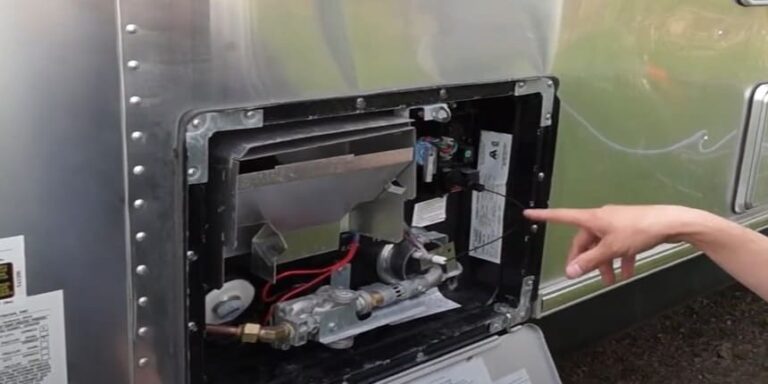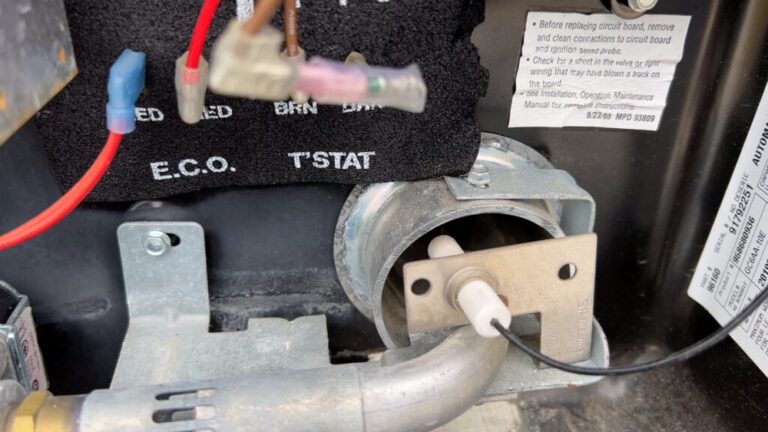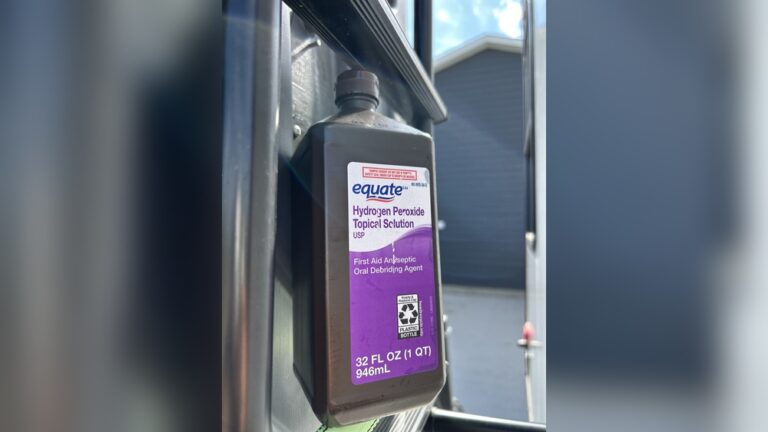Imagine settling into your RV after a long day of travel, ready to enjoy a hot shower, only to be greeted by the unpleasant odor of rotten eggs. If this scenario sounds familiar, you’re not alone.
A smelly water heater can turn your peaceful getaway into a frustrating experience. But don’t worry; you’re about to discover what’s causing that stench and, more importantly, how to fix it.
The root of the problem is your first step toward reclaiming that fresh, clean shower experience you deserve.
Stick around to learn the simple steps to eliminate the odor and ensure it never disrupts your adventures again.
Your next trip doesn’t have to be overshadowed by a foul smell, and by the end of this guide, you’ll know exactly what to do.
Causes Of rv water heater bad rotten egg smell
There’s nothing quite as off-putting as the smell of rotten eggs wafting from your RV water heater. The causes can help you tackle this issue effectively.
This unpleasant odor often stems from specific interactions within your water heater. Let’s delve into the primary culprits behind this smell.
#1. Sulfur Bacteria Growth
Sulfur bacteria thrive in warm, damp environments, making your water heater a perfect home. These bacteria feed on sulfur compounds in water. This process releases hydrogen sulfide gas, which smells like rotten eggs.
If your water heater is set to low temperatures, it creates an ideal breeding ground for these bacteria. Regularly flushing your system can help keep these unwelcome guests at bay.
#2. Chemical Reactions In Water Heater
Some water heaters have anode rods made from magnesium. These rods react with sulfur in the water. The reaction produces hydrogen sulfide gas, leading to that notorious rotten egg smell.
You might need to replace the anode rod with one made of aluminum or zinc. Doing so can reduce the chemical reactions causing the odor.
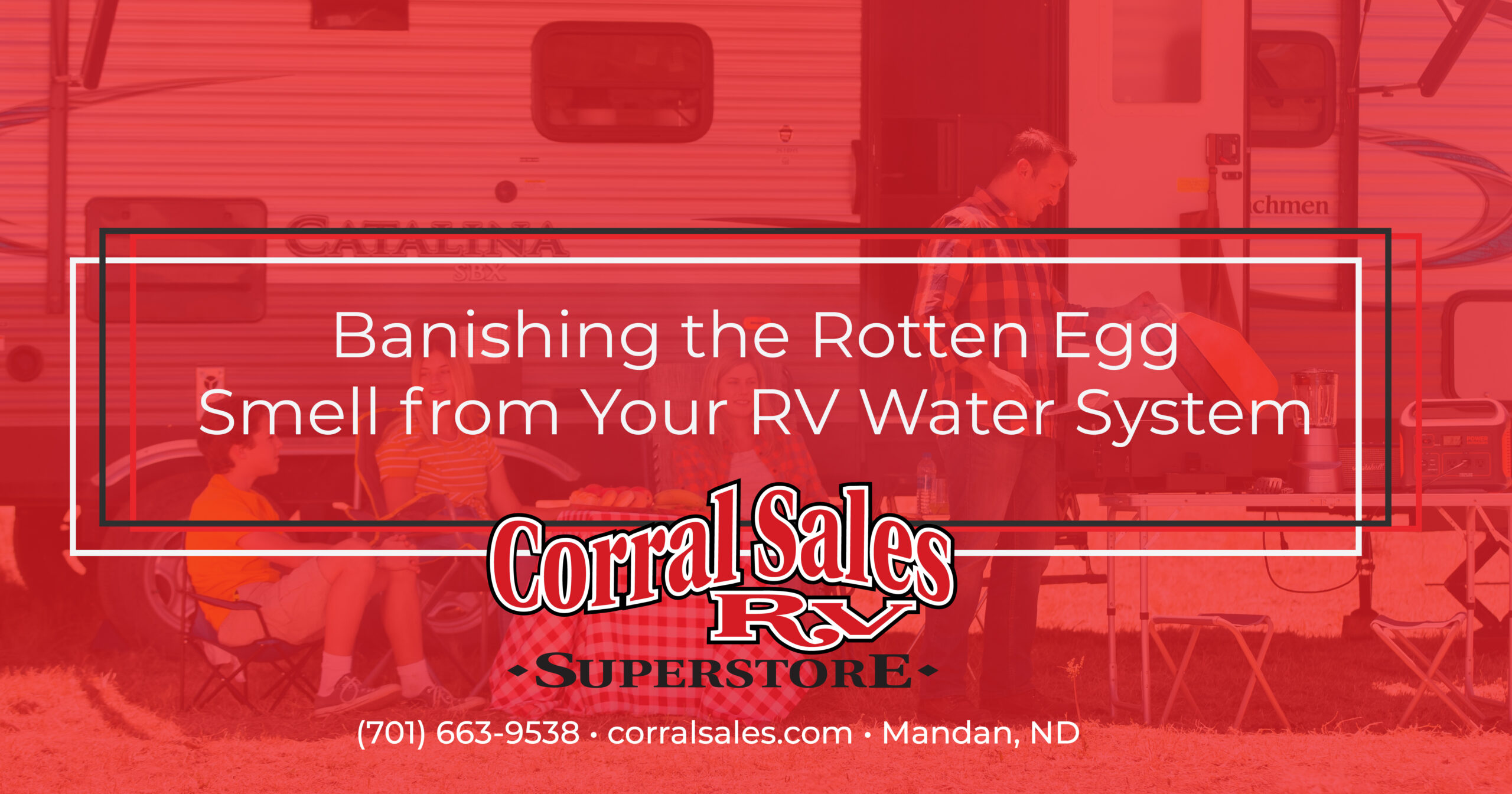
Credit: corralsales.com
Immediate Actions To Fix rotten egg smell rv hot water heater
Experiencing a rotten egg smell from your RV water heater? Begin by checking the water heater for any signs of sulfur buildup. Ensure the anode rod is in good condition, as a corroded rod often causes this odor. Consider flushing the tank to remove lingering bacteria.
If your RV water heater smells like rotten eggs, immediate actions are crucial. This unpleasant odor often indicates a sulfur bacteria problem. It’s important to address this issue quickly to ensure safe water use.
Step 1: Shut Off Water Heater
Turn off your RV water heater right away. This stops the production of smelly gas. It also prevents potential damage to the heater.
Locate the power switch and flip it off. If it’s gas-powered, close the gas valve carefully. This step helps prevent further odor development.
Step 2: Check Water Supply
Inspect the water supply for contamination. Sulfur bacteria may be present in the water source. Disconnect the water line and flush the system.
Use clean water to rinse the tank thoroughly. This process helps remove any bacterial growth. Always ensure the water source is safe and clean.
Cleaning The Water Heater
Experiencing a rotten egg smell in your RV water heater? This issue is often caused by sulfur bacteria. Cleaning the water heater can help eliminate unpleasant odors and ensure fresh, clean water during your travels. Regular maintenance prevents bacteria build-up, keeping your RV water system odor-free and efficient.
Cleaning the water heater in your RV isn’t just about maintaining its efficiency; it’s about ensuring a fresh and odor-free experience.
If your RV water heater smells like rotten eggs, it’s likely due to bacteria interacting with the anode rod and creating hydrogen sulfide gas.
Tackling this issue head-on is crucial to enjoying your travels without unpleasant odors wafting through your living space. Let’s dive into two effective methods: draining the tank and flushing with vinegar.
Draining The Tank
Draining your RV water heater tank is the first step to eliminating those pesky rotten egg odors. Begin by turning off the heater and letting it cool. Once it’s safe to handle, locate the drain valve at the bottom of the tank.
Attach a hose to the valve and direct it to an appropriate drainage area, like a sink or outside space. Open the valve and allow all the water to escape. This process clears out any sediment buildup that might be contributing to the smell.
Flushing With Vinegar
Flushing your water heater with vinegar is a natural way to combat odor-causing bacteria. Vinegar’s acidity helps break down mineral deposits and eliminate odors.
Fill a jug with white vinegar and pour it directly into the tank through the pressure relief valve. Make sure you fill it completely to ensure thorough cleaning. Let the vinegar sit inside the tank for a few hours.
This waiting period allows the vinegar to work its magic. Afterward, drain the tank again to remove the vinegar and any loosened debris.
Have you ever considered how a simple household item like vinegar could be the key to a fresher RV experience?
Cleaning your water heater is not just maintenance; it’s a gateway to a more pleasant journey. Grab your supplies, follow these steps, and say goodbye to those rotten egg odors for good!
Replacing The Anode Rod
Is your Rv camper hot water smells like rotten eggs? This unpleasant odor often signals an issue with the anode rod. Over time, anode rods corrode and lose effectiveness. Replacing the anode rod is a simple fix that can restore fresh water scent. It’s a cost-effective way to maintain your RV’s water quality.
Types Of Water Heater Anode Rods
There are different anode rods available for water heaters.
- Magnesium rods
- Aluminum rods
- Zinc-aluminum rods
Magnesium rods are common in RV water heaters. They are effective but corrode faster in hard water.
Aluminum rods last longer in hard water conditions.
Zinc-aluminum rods help reduce odors by neutralizing bacteria.
Choose the right type based on your water conditions.
Water Heater Anode Rod Installation Tips
Before starting, turn off the water heater and disconnect power. Release pressure from the tank by opening a hot water tap.
Use a wrench to remove the old anode rod. Inspect the tank for sediment or buildup. Wrap Teflon tape on the threads of the new rod.
Insert and tighten the new rod into the water heater. Reconnect power and refill the tank. Check for leaks around the rod.
Preventive Measures
Smelly RV water heaters can be fixed by regular cleaning and maintenance. Flush the tank with a vinegar solution to remove bacteria and odors. Install an anode rod made of magnesium to prevent sulfur smell in Rv water. Regular checks ensure fresh and odor-free water, enhancing your travel experience.
Preventive measures are essential to keep your RV water heater free from that unpleasant rotten egg smell. When you’re on the road, the last thing you want is to deal with foul odors every time you use hot water.
Fortunately, there are simple steps you can take to avoid this issue. By maintaining a regular maintenance schedule and exploring effective water treatment options, you can keep your water heater smelling fresh and clean.
Regular Maintenance Schedule
Setting up a regular maintenance schedule is your first line of defense. It’s easy to forget about your water heater until it starts causing problems. Regularly check the anode rod, which is a key component in preventing that RV water smells like sulfur.
Replace it if it’s worn out. This small task can save you from bigger headaches down the road. Flushing your water heater every few months is another practical step. It helps remove sediment buildup, which can contribute to odors.
Make this a part of your routine to keep everything running smoothly.
Water Treatment Options
Consider using water treatment options to tackle the root of the problem. Water filters are a great start. They help reduce the presence of sulfur and other minerals that cause odors. Think about adding hydrogen peroxide to your water heater.
It’s a safe and effective solution to kill bacteria that produce smelly gases. You’ll be surprised at how well this simple remedy works. Another option is using a water softener.
Hard water can lead to mineral buildup, which encourages Rv water heater bad rotten egg smell. Softened water reduces this risk and keeps your heater in better condition.
Are you taking every step possible to ensure your RV’s comfort?
These preventive measures can make a big difference. Keep your travels enjoyable and odor-free with these practical tips.
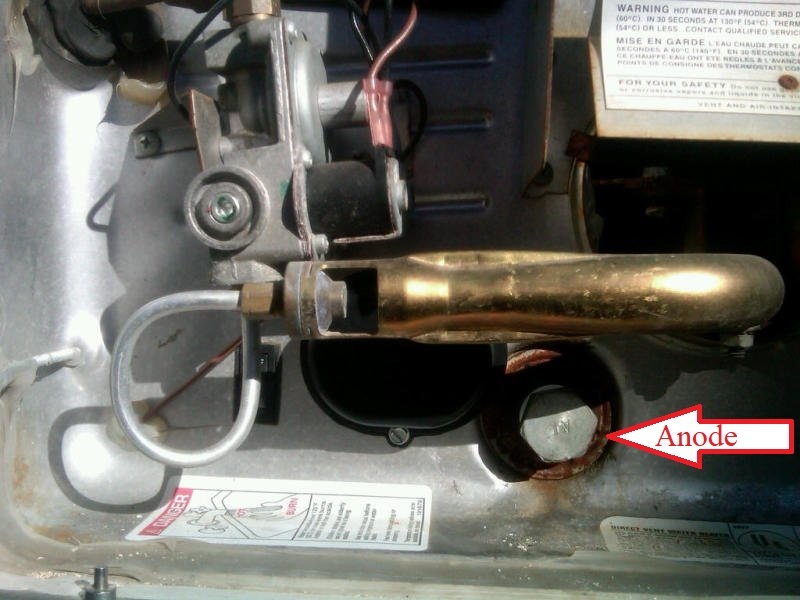
Credit: www.doityourselfrv.com
Seeking Professional Help
Experiencing a rotten egg smell from your RV water heater can be alarming. It often indicates a sulfur or bacterial issue inside the heater. While some might attempt DIY solutions, seeking professional help ensures safety and efficiency.
Technicians can diagnose and resolve complex problems that might be beyond basic troubleshooting. Understanding when to call a technician can save you from potential damage or health risks.
When To Call A Technician
If the smell persists after basic cleaning, it’s time to call a technician. An expert can assess the root cause quickly.
They have the tools and knowledge to handle any underlying issues. Persistent odor might indicate a serious problem that requires professional intervention. Don’t wait for the issue to worsen; timely action can prevent costly repairs.
Costs And Considerations
Professional services come with costs, but they ensure thorough solutions. Consider the long-term benefits of investing in expert help. While costs vary, getting a clear estimate upfront can help budget accordingly.
Choose technicians with good reviews and experience to ensure quality service. Weighing costs against potential damage can highlight the value of professional assistance.
Frequently Asked Questions
Why Does Rv Water Heater Smell Bad?
A rotten egg smell in your RV water heater is usually due to sulfur bacteria. These bacteria thrive in warm water, especially when the heater is not used frequently. Regular maintenance and flushing can help eliminate these odors.
How Can I Eliminate The Rotten Egg Odor?
To remove the rotten egg smell, flush the water heater with a vinegar solution. This helps kill sulfur bacteria. Regularly maintaining and cleaning your water heater can prevent future odors.
Is The Rotten Egg Smell Dangerous?
The rotten egg smell indicates sulfur bacteria but is not hazardous to health. However, it can be unpleasant. Regular cleaning prevents bacterial growth and maintains water quality.
Can I Prevent The Smell In My Rv Water Heater?
Yes, you can prevent odors by regularly flushing your water heater. Use vinegar or hydrogen peroxide solutions to clean and maintain the heater. Regular maintenance keeps your water fresh and odor-free.
Conclusion
A rotten egg smell from your RV water heater can be troubling. It’s usually caused by bacteria in the tank. Flushing and cleaning the heater can help. Use a mixture of vinegar and water for cleaning. Regular maintenance prevents future odors.
Keep your water heater fresh and odor-free. Check anode rods and replace if needed. Clean water ensures a pleasant RV experience. Don’t ignore bad smells; they indicate a problem. Address issues promptly to avoid damage. Enjoy a comfortable and odor-free RV adventure.
Safe travels and happy camping!

